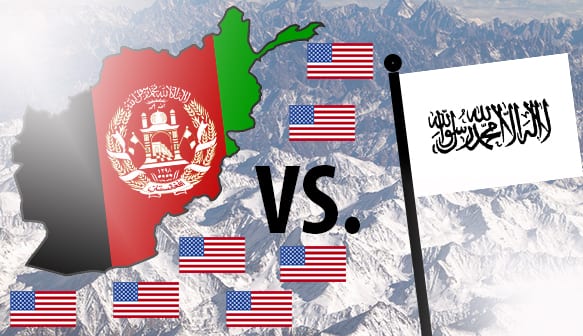
Following a decade of turmoil, violence remains rampant in Afghanistan. Instability is the order of the day, with 18 of 34 provinces still being contested between federal Afghan police and Taliban-associated insurgents. Despite the uncharacteristically positive news regarding the “democratic” transition of power in Afghanistan, corruption, drug production and regional divisions have left the central government bankrupt and virtually powerless. Thankfully, the United States and the new Afghan government have recently signed a series of security pacts, thereby allowing for 9,800 U.S troops and 2,000 NATO troops to remain within the country until the conclusion of the international coalition in December.
However, as millions of Americans have I hope learned since 2001, throwing troops and billions of dollars of defense spending at a problem doesn’t make it go away. It may be time to reexamine U.S policy efforts in Afghanistan, such as whether the United States should still be fighting to preserve the corrupt and, admittedly, fraudulent system of Afghan democracy. It has become extraordinarily clear that U.S. presence is no longer desired: during Hamid Karzai’s September farewell address, he not only failed to acknowledge the 15,000 foreign casualties sustained since the fall of the Taliban in 2001, but outright condemned recent involvement by Western powers in Afghanistan.
It is, however, quite refreshing to see compromise prevail in the first peaceful democratic transition of power in Afghanistan’s history. President Ashraf Ghani has agreed to share executive power with runner-up Abdullah Abdullah by appointing him CEO, a newly established position, similar to Prime Minister. There is hope for the freshly elected government. Ghani is no Karzai; he received his Master’s degree in anthropology from Columbia University in New York and was a frequent contributor on BBC Farsi before joining Karzai’s cabinet. Ghani also married into a Christian American-Lebanese family from Beirut, and – in an unexpectedly modern gesture – publicly thanked his wife for her support and initiatives for Afghan women.
This silver lining should not distract from the dichotomous legacy of Hamid Karzai. The former Afghan president embodies the struggle between Afghanistan’s ascent into a western-led international regime and a tribal confederacy rooted in Sharia law and radical Islam. The U.S has embroiled itself in a cultural conflict against traditional Muslim values that pre-date the United States by a millennium. Therefore, it is essential that the U.S limit its involvement in the budding state to secure the interests of the newly-elected government, ideally enacting the same style of self-determination and popular rule that was envisioned after the topple of the Taliban in Kabul.
To successfully legitimize their power-sharing initiative and establish popular support, it would be prudent for Ghani to call for the immediate assembling of the “loya jirga,” or mass meeting, that takes place to resolve constitutional items or issues of national importance. This would allow for a federal projection of power, while seeking to include traditional tribal leaders in their equivalent of a constitutional referendum.
Despite the uncertainty and detrimental obstacles to a strong central government in Kabul, there is a golden opportunity for cooperation between the Ghani and Abdullah. By enacting popular reforms and embracing modernity, these two leaders could pave the way for a new era in Afghanistan, ideally one of peace and stability.
Bjorn Thompson ’15 thompsba@stolaf.edu is from Edina, Minn. He majors in mathematics.
Graphic Credit: ETHAN BOOTE/MANITOU MESSENGER

